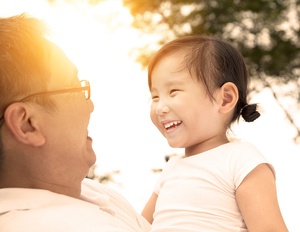
 Authored by Jenny Kepler, MFT for Psyched in San Francisco Magazine. Jenny has been helping families welcome babies and navigate parenthood for over 10 years. Her office is in downtown Portland, OR where she does in person therapy with adults, couples and families. She does teletherapy and parent coaching over the phone for people who can't see her in Portland. Jenny leads monthly FREE | LIVE | ANONYMOUS "Ask The Therapist" webinars which you can pose your question for here.
Authored by Jenny Kepler, MFT for Psyched in San Francisco Magazine. Jenny has been helping families welcome babies and navigate parenthood for over 10 years. Her office is in downtown Portland, OR where she does in person therapy with adults, couples and families. She does teletherapy and parent coaching over the phone for people who can't see her in Portland. Jenny leads monthly FREE | LIVE | ANONYMOUS "Ask The Therapist" webinars which you can pose your question for here.
What you're about to read applies to any relationship where the heart is involved.
Falling asleep when you've hurt someone you love is anguishing. You toss and turn, trying to shake the residue of wrongdoing. When you've hurt your child's feelings, the residue just permeates you with worry. Why would it be any different? So much is riding on the quality of your connection with your child(ren): how they'll soothe their hurt feelings, how they'll choose and keep friends, how they'll manage the ups and downs of life, and even how they'll live up to their potential. Believing you could be jeopardizing their healthy development can be paralyzing. Lots of parents find themselves here at one point or another. If you find yourself tossing and turning, know that you are not alone and listening to this worry will help you turn things around.
The good news is yes, you can start over
Did you know that taking the time to mend screw-ups with your child, when combined with showing regular interest in what's going on in her heart and mind, actually boosts healthy development? Sounds like pretty good news, eh? But it does take courage.
I'm Sorry Is So Tumultuous
Most functioning adults understand that an apology is appropriate when we've misstepped. However getting from intellectual awareness to the actual act is not so easy. We get so tied up with the pain (yes, pain) of acknowledging we've hurt someone, and the fear of disconnection from them, we avoid doing the very thing that will make us both feel better! This pain that we hate to acknowledge is shame and we will do almost anything not to feel it because shame is often linked to self-worth. For many of us, getting to "I am sorry" brings up unhelpful beliefs like, "I am worthless." But it doesn't have to.
It's hard enough to apologize to another adult. Apologizing to our kids gets even more turbulent because we're navigating discipline at the same time we're dealing with the hurt we caused, which can be really painful and confusing. All the while shame roils below, begging, Am I a bad parent? If I admit a mistake, will they still respect my authority? Will the lessons I'm trying to teach be lost? Amazingly, the answer is that they'll respect us more if we can be responsible with everybody's feelings (including our own) and they'll be more open to learning when they feel respected too. They will even grow.
Turn and Use the Shame
Just like all the other emotions, everybody feels shame sometimes. It exists for a reason. Shame's purpose is to alert us when our behavior needs recalibrating. Healthy relationships are the original source of self-worth for kids, so when important relationships get rocky, kids can struggle with self-worth and sometimes development too. It makes sense that we may feel some shame here, when we're worrying about such an important relationship; and it's also okay. For many parents, facing the shame of their own mistakes is so hard that they fall into painful relationship patterns, rather than listening to what shame is trying to tell them. But if ever there was a time for bravery, this is it. I have worked with a lot of parents over the years who have used shame to make change, and I know you can do it too. Remember, shame's here to help you move out of this painful place.Turn towards it. Its presence does not mean you are bad; it is a signal that it's time to make a change. Change is good!
Recently, a mom confided in me that she was scared stiff [fear] about the wedge [disconnection] she believes she is constantly driving between herself and her daughter, and what it bodes for the future [development]. She kept hoping she could start over, but the next day would come and she'd be back in the same cycle again [shame]. The heartache this dilemma was causing her came right through her words, so separate was she feeling from her little girl. She was worried and stuck. Fear of the shame kept this mom in a painful pattern with her daughter, but when she braved paying attention to it, she was able to reach out for help. Courageously, she realized that changing her own behavior would be more supportive than what she had been doing. Now she's working on repair.
In the middle of a clash with your child, it's easy to forget that you're responsible for her heart. 
Your child is not the enemy, but it can feel like it when you're at your wit's end. Remember, no child or parent wants to behave badly; and if they knew how to do better in the moment, they would. Still, you can work on your connection even through the difficulty. There may be lots of changes you want to make, but you can start with an apology. They're not just for grown-ups! Offering a proper apology is important because when you acknowledge the hurt you've caused, you free your child from blaming herself. An apology is about showing your child that her experience matters to you, and that you love her unconditionally despite your anger.
In apologizing, three processes happen that are super supportive to development: attunement, integration and differentiation.
Attune by turning your open, curious attention to your child while keeping track of your own experience. You'll increase your capacity to remain connected through difficult emotions while modeling this skill for her. With empathy, invite her to share her experience - even if it's painful to hear. She gets to process her feelings out loud in connection with you as you simply listen, fostering integration, a step towards emotional wholeness and self-regulation. By apologizing for the hurt you caused, you acknowledge that she is her own wonderful person, both separate and connected to you, with a unique experience. Your closeness, attention and non-defensive stance show her how much you value this unique self of hers and she in turn will feel respected. This is called differentiation, and it's not only the work of childhood but is also foundational to healthy adult relationships.
By apologizing for the hurt you caused, you acknowledge that she is her own wonderful person, both separate and connected to you, with a unique experience.
Repair soothes the nervous system for both of you. A worked-up nervous system is how we end up clashing in the first place - so soothing it is vitally important. When you practice apologizing, you wire in resilience and strengthen your relationship, diminishing clashes and expanding your capacity for weathering difficulty. At the end of the day, a good repair is actually more helpful to development than never clashing at all.